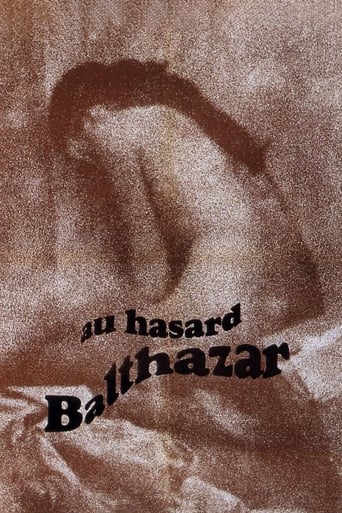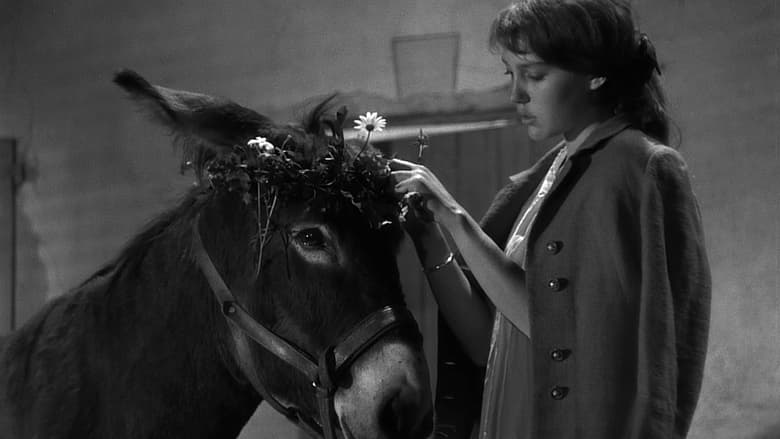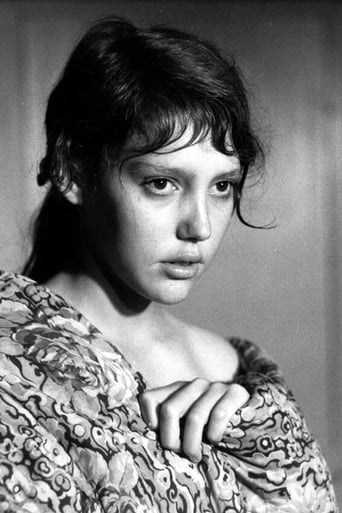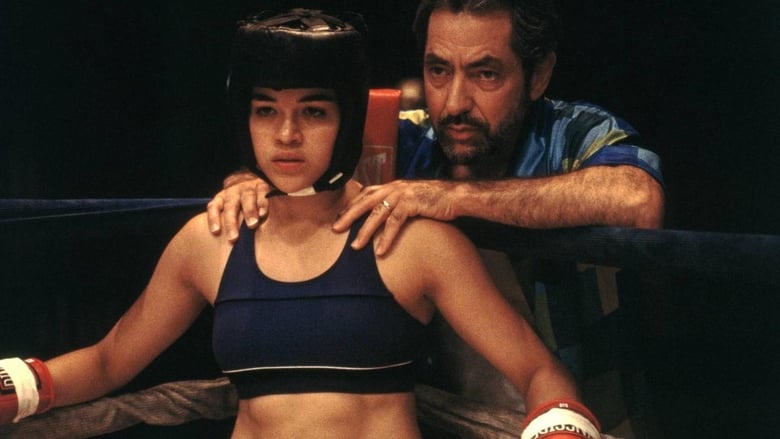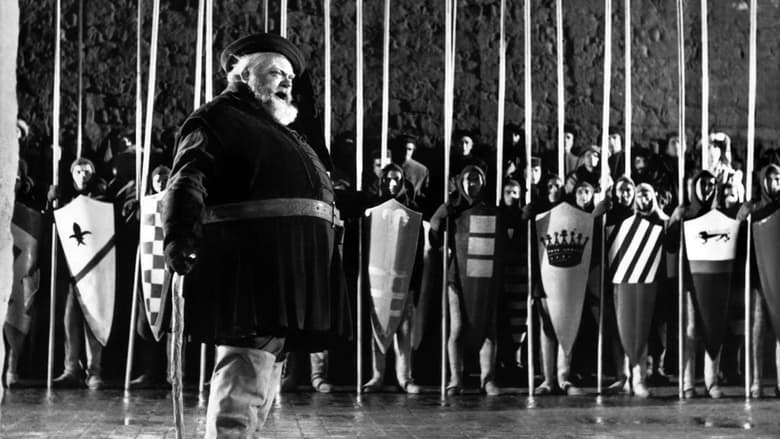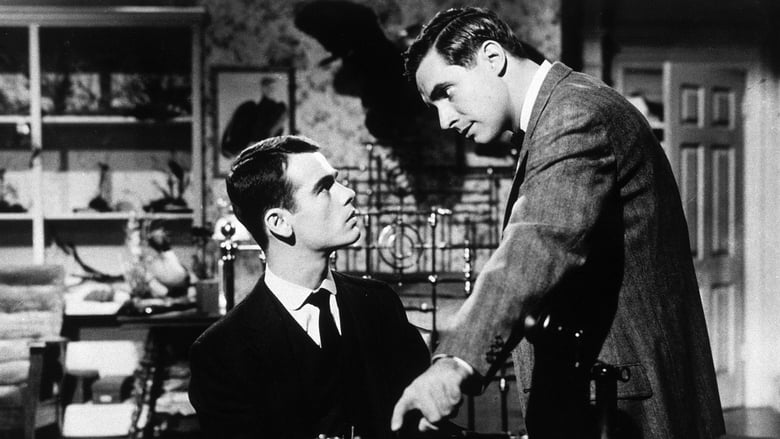The story of a donkey Balthazar as he is passed from owner to owner, some kind and some cruel but all with motivations beyond his understanding. Balthazar, whose life parallels that of his first keeper, Marie, is truly a beast of burden, suffering the sins of humankind. But despite his powerlessness, he accepts his fate nobly.


Similar titles
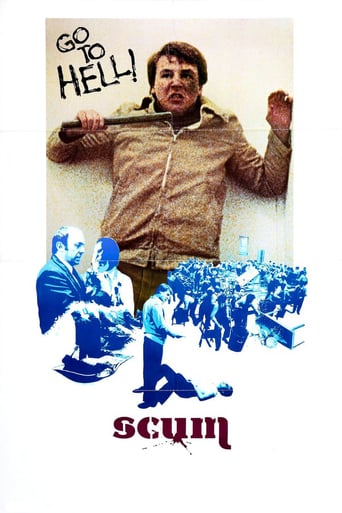
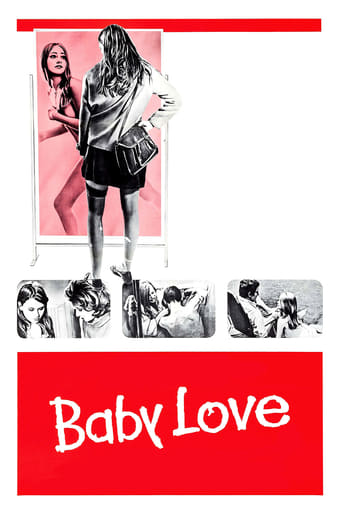
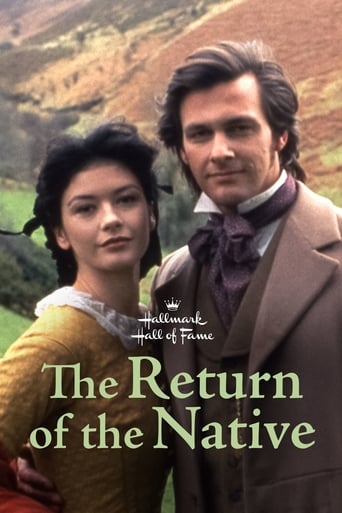
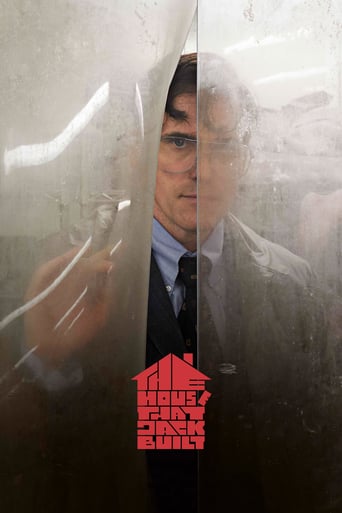
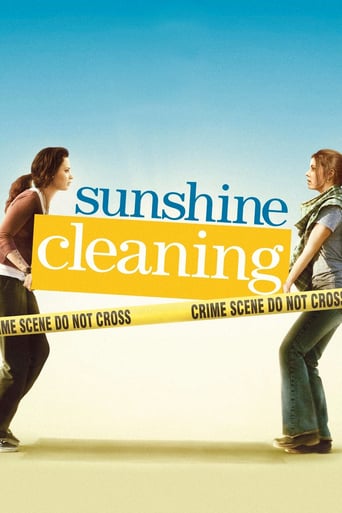
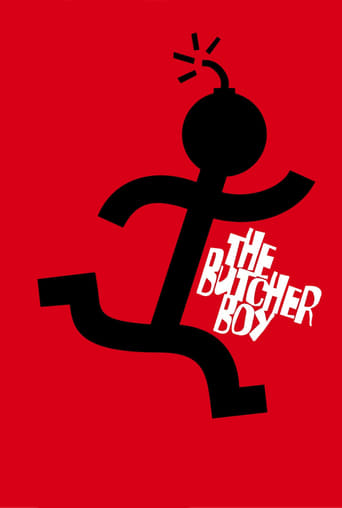
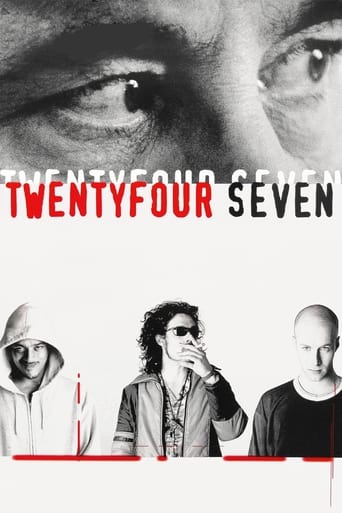
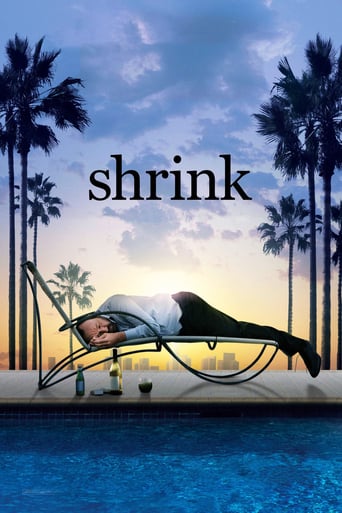
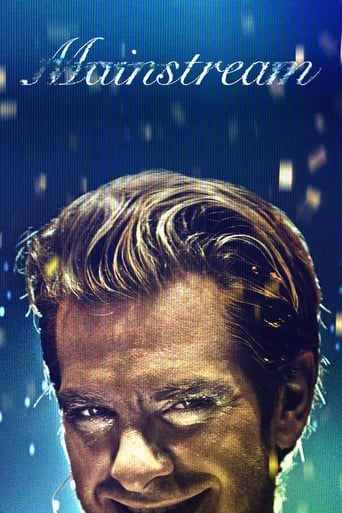
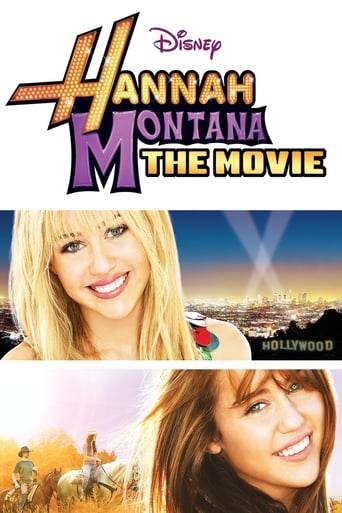
Reviews
I've just finished seeing this in a monthly foreign film series and wish I could give it two different ratings -- probably a "2" because I kept trying to figure out its plot and couldn't but also an "8" or "9" because it does show that in living, as Balthazar experienced in this film, many of us go through a number of very different experiences. Seeing this film without first having read any reviews or with any advance knowledge of its message, it was finally that latter view that I arrived at after giving up on trying to figure out "the plot."
A film tends to be judged by its mass appeal: films cost lots of money and therefore film makers normally want them to be seen by lots of people. But that does not mean that film SHOULD be judged by its mass appeal: you do not judge the value of the US publishing industry by the number of murders in westerns and thrillers. Robert Bresson used the medium of film for unusual purposes. His minimalism stimulates your attention: you scan gestures, looks and shabby interiors for clues. Sounds – a key turning in a lock, a tram passing, a donkey's braying, brief snatches of music - take on a heightened meaning. A few seconds of classical music are often heard when there is a 'window of opportunity' for a human being. True, Bresson demands a lot from the viewer, and with some films I just gave up; but I prefer that to the attitude of many film directors who make me feel insulted: another simpleton has been duped into paying for a piece of trash providing two hours of oblivion. Bresson disliked acting, as it got in the way of what he wanted to express with his films; instead he worked with amateurs, 'models' who were not allowed to dramatize or psychologize. The most extreme example of his approach is 'Au hasard Balthasar', where the protagonist is a donkey called Balthasar subjected to and witnessing human vices. 'Au hasard' means at random, and all the cruelty seems random. But I wonder, with my imperfect French, whether au hasard in this case could not be a 'call to action': 'au secours' means help!, so maybe 'take your chance (in life)' is a possible translation here. Although I'm familiar with Bresson's unusual approach it took me a couple of viewings to understand that the 'story' and the 'characters' mean even less in this film than in others. There is a story –Balthasar's successive misadventures and occasional rebellions, ending in death – but it is not a very coherent one, more a succession of scenes illustrating various forms of human shortcomings and nastiness, personified by a variety of well, models. All of this is just there to bring out the patient suffering of the donkey, who in the process becomes, as one of the few decent people in the film says, 'a saint' and dies a painful yet peaceful death. You can see the animal as a symbol of Christ, as many have done, and for a catholic like Bresson it would be a 'natural' symbol. But I'm always wary about symbolism in film - you'd end up needing a user's manual ('this actually means that'), and a film which requires a manual is no good. Rather, Bresson stimulates a sort of hyper-awareness of the world by the way he shows it. Balthasar's various owners impose a role on the donkey, who usually puts up with it but never becomes a satisfactory actor from a human point of view ('good for you', I always think when a cat refuses to obey). There is a memorable scene where Balthasar is 'employed' in a circus (soon to be kicked out) and is led past cages with other animals. They eye each other; we are briefly in their world: trapped, but never willing servants. When the humans create havoc in the film, the camera zooms in on the donkey's profile, quite still – the eye of the storm, you might say. I do not value this film quite as highly as 'Un condamné à mort s'est échappé' or 'Pickpocket', maybe because sometimes I hear, so to speak, Bresson's brain creak as he works on his message. But the last couple of minutes are perfect. My eyes start pricking. Not so much because the poor animal is a dying a slow yet beautiful death, on a sunlit hillside, surrounded by placid sheep. Or because of any implied symbolism (the Redeemer dying for His flock). My best explanation is a 'parallel', the end of a poem by the Scottish poet Sorely MacLean about the mountains of the Isle of Skye: ' beyond misery, despair, hatred, treachery,/ beyond guilt and defilement: watchful,/ heroic, the Cuillin is seen/ rising on the other side of sorrow.'
Faith has been made complicated in the 21st Century. It is economic. It is sociological. It is classist. Above all, it is politicized. Christ's message has been manipulated and warped so that people can justify hate with His words. Mention of the Republican party or the Right will undoubtedly conjure images of frenzied worshipers, people shouting in tongues, and probably Rick Santorum. How many votes in this election will be made with a spiritual basis? Belief has been exorcised from political discourse. It's like your "personal life," something you leave behind when going to work. For many, Christianity has been made a joke - a punchline that everyone knows will never land.It's mental segregation. A religious conviction has been made into shorthand for particular socioeconomic ideas. And wrongly so. Educated liberals offer factual objections to the most basic assumptions in the Holy Bible. In fact, the simple virtue of education has been politicized as well. Believing in a God is now associated with being stupid or uneducated.All of this is equally upsetting. It makes AU HASARD BALTHAZAR so vital.The Christ imagery is not hard to see. BALTHAZAR is about the eponymous donkey and his struggles. It is a touching arrangement of image after image, sound and story. Bresson was a French Catholic and, like those of us with a strong faith, couldn't leave his convictions at home. In art, this fact somehow becomes a virtue again.Bresson's tale is full of impeccable photography and a tremendous script. The pictures are so astoundingly crisp and focused that Bresson teaches us where to look with less labor than Hollywood is every able. It's so subtle, but we have been trained to lie with depth, especially now as we are dancing with three dimensions. He famously said that the only way to photograph was from close and in front. At times, this consistency is redundant, not beautiful, but only when employed in rapidly edited passages. Most of the time, however, his photography is sublime - perhaps more evocative of the Italian school than other contemporary French work. In addition, there is a magnificent script, spending a gorgeous majority in silence, respecting the potential of the image. It owes equally to the formality of mass and the subdued ecstasy in Dostoyevsky.So many remark on Bresson's radiant visual style, but he also makes thoughtful use of sound. Some noises, like a cricket or a creaky wheel will gradually migrate from peripheral to dominating. He constructs these tableaux in layers, but unimposing ones. They are simple, but never insulting. His discipline informs the counterpoint rather than eliminating it.A difficult film, but entirely rewarding. Don't ignore the religious imagery and symbolism. Instead, appreciate the intimacy between Bresson and his material.93.3
Just purchased a used copy at work and saw the film last night, for the second time. It reconfirmed for me what I suspected upon an initial viewing- that it's one of the four or five greatest films I've ever seen. That sounds like hyperbole from a guy with an MFA in film studies, but its far from a radical statement. While Bresson is woefully under-represented even in most film schools (at least in the U.S.) he is considered by many a hard-core cineast among the greatest in the pantheon of auteur's, and many think this his highest accomplishment. Godard called it "the world in 90 minutes" so I think that tells you something. Bresson started out as a painter, and I think what is so unique about this film is the way it has a narrative power different than that of any film I've ever seen. Indeed, it seems more like the "still" narrative of a painting, like that of a Caravaggio or a Rembrandt. It's not narrative in the sense of a "beginning, middle, and end" because its truths- the fleeting joys and predominate pain of life and death- are so universal that we know them, on some level, before we witness the work. But art-works of such grandeur illuminate what we take for granted and make life seem, again, like a transcendent drama.
